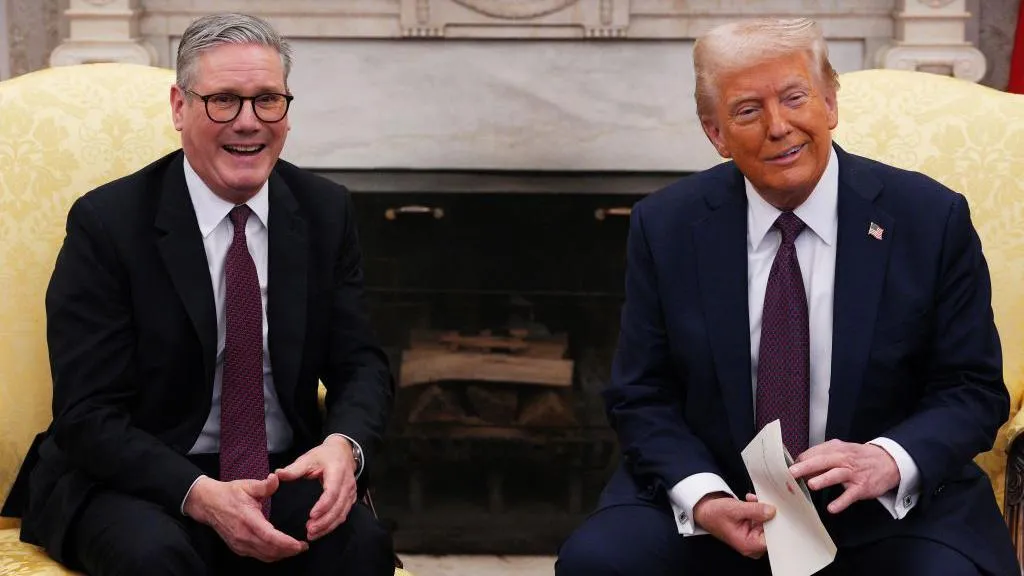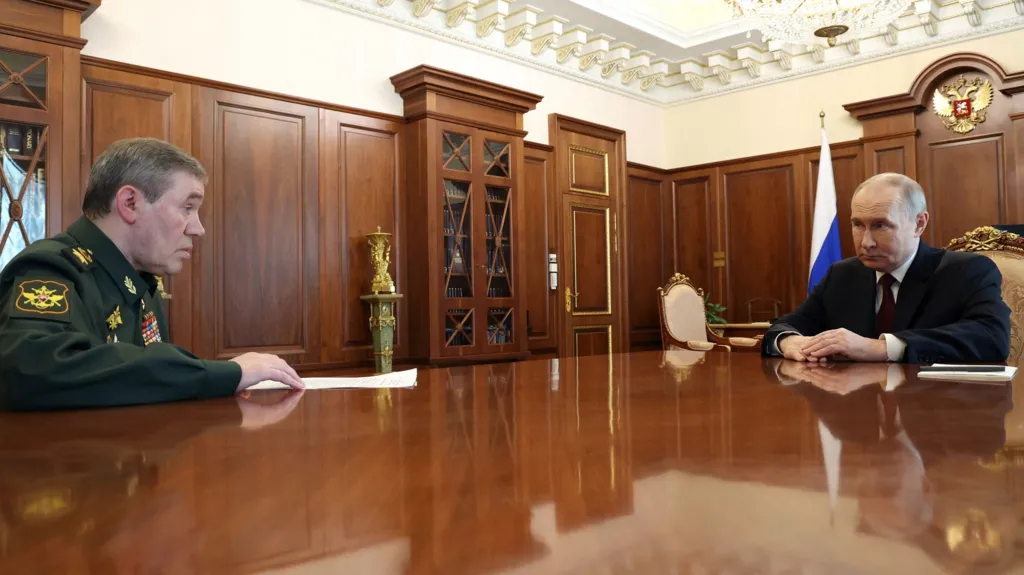
 Getty Images/Pool/AFP
Getty Images/Pool/AFPThe US has agreed to reduce import taxes on a set number of British cars and allow some steel and aluminium into the country tariff-free, as part of a new agreement between the US and UK.
The announcement offers relief for key UK industries from some of the new tariffs announced by President Donald Trump since entering office in January.
But it will leave a 10% duty in place on most goods from the UK.
Though hailed by leaders in the two countries as significant, analysts said it did not appear to meaningfully alter the terms of trade between the countries, as they stood before the changes introduced by Trump this year.
No formal deal was signed on Thursday and the governments were light on details.
Speaking from a Jaguar Land Rover factory in the West Midlands, Sir Keir Starmer described the agreement as a "fantastic platform".
At the White House, Trump called it a "great deal" and pushed back against criticism that he was overstating its importance.
"This is a maxed out deal that we're going to make bigger," he said.
The two sides said the US had agreed to reduce the import tax on cars - which Trump had raised by 25% last month - to 10% for 100,000 cars a year.
That will help luxury carmakers such as Jaguar Land Rover and Rolls Royce, but could limit growth in the years ahead, as it amounts to roughly what the UK exported last year.
Tariffs on steel and aluminium, which Trump had also raised earlier this year to 25%, have also been slashed, according to the Prime Minister's Office.
The office also said the two sides had agreed to "reciprocal access" for beef exports, with a quota of 13,000 metric tonnes for UK farmers.
Those figures were not confirmed by the White House, though it said it expected to expand its sales of beef and ethanol to the UK, a longstanding demand on the part of the US.
The US said the deal would create a $5bn "opportunity" for exports, including $700m in ethanol and $250m in other agricultural products.
"It can't be understated how important this deal is," US Agriculture Secretary Brooke Rollins said.
UK Steel Director General Gareth Stace welcomed the agreement saying it would offer "major relief" to the steel sector.
"The UK Government's cool-headed approach and perseverance in negotiating with the US clearly paid off," he said.
Other business groups expressed more uncertainty.
"It's better than yesterday but it's definitely not better than five weeks ago," said Duncan Edwards, chief executive of BritishAmerican Business, which represents firms in the two countries and supports free trade.
"I'm trying to be excited but I'm struggling a bit."
In the House of Commons, Conservative Shadow Trade Secretary Andrew Griffith dismissed the announcement as "a Diet Coke deal, not the real thing".
Trade Minister Douglas Alexander stressed that the deal was "jobs saved, not job done".
The US and UK have been discussing a trade deal since Trump's first term. They came close to signing a mini-agreement at that time.
But the US has long pushed for changes to benefit its farmers and pharmaceutical issues, which had been non-starters politically for the UK.
It was not clear how much those issues had advanced.
The National Cattlemen's Beef Association said the agreement in-principle had delivered a "tremendous win" for American ranchers but the US Meat Export Federation, which tracks trade barriers for farmers in the US, said it was still trying to pin down information about the changes.
The UK said there would be no weakening in food standards for imports.
While the UK appears to have made some commitments, "the devil will be in the details," said Michael Pearce, deputy chief economist at Oxford Economics, which said it was making no change to its economic forecasts as a result of the announcement.
Other issues loom.
Trump has said repeatedly that he wants to tax imports of pharmaceuticals, in a bid to ensure the US has a strong manufacturing base for critical medicines.
The UK said the US had agreed to give British firms "preferential treatment".
But Ewan Townsend, a lawyer at Arnold & Porter, who works with health care firms, said the industry was now "left waiting to see exactly what this preferential treatment will mean".

13 PerFlyer